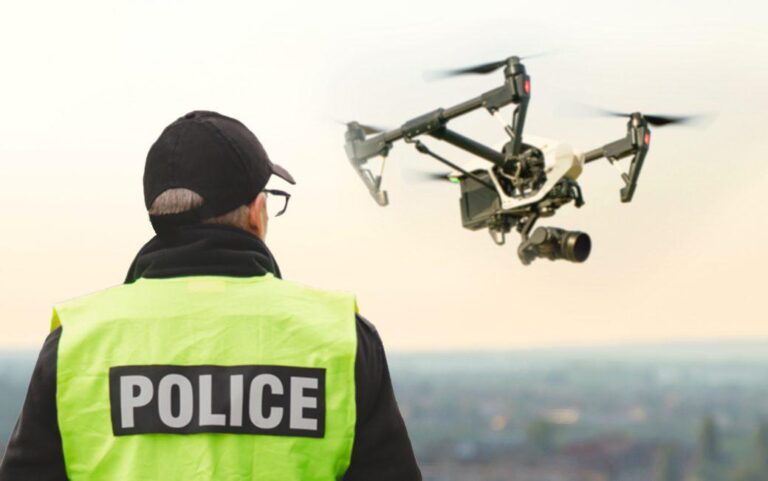Public opinion remains sharply divided over the expanding use of surveillance technology by police departments across the country. As law enforcement agencies increasingly adopt tools such as body cameras,facial recognition,and license plate readers,debates intensify over the balance between enhanced public safety and the protection of individual privacy rights. While some citizens view these technologies as essential for modern policing and transparency, others raise concerns about potential abuses and the erosion of civil liberties.This split reflects broader tensions as communities grapple with how best to harness innovation without compromising fundamental freedoms.
Table of Contents
- Public Concerns Over Privacy and Civil Liberties
- Balancing Security Benefits with Potential for Abuse
- Community Voices Call for Greater Transparency and Accountability
- Policy Experts Advocate for Clearer Regulations and Oversight
- Wrapping Up
Public Concerns Over Privacy and Civil Liberties
Growing apprehension among citizens reflects a deep unease about how police surveillance technology may infringe on fundamental rights.Critics argue such innovations risk eroding privacy protections by enabling pervasive monitoring that extends beyond targeted investigations. Concerns focus on the potential for unauthorized data collection, indefinite storage of personal details, and the lack of transparency surrounding usage policies. Civil liberties advocates highlight the danger of disproportionately impacting marginalized communities, raising fears over biased enforcement and unchecked authority.
Considering these issues,public discourse often emphasizes the need for:
- Clear regulatory frameworks to govern surveillance practices
- Accountability measures including independent oversight
- Community engagement to balance security with individual freedoms
- Regular impact assessments to monitor civil liberties implications
As adoption of new policing tools expands,the debate underscores a critical challenge: finding equilibrium between technological advancement and protecting constitutional rights.
Balancing Security Benefits with Potential for Abuse
Advocates stress the undeniable security advantages offered by modern police surveillance technologies,highlighting their role in enhancing crime detection,expediting investigations,and preventing potential threats. Tools such as facial recognition and predictive analytics have been credited with improving response times and increasing officer safety. However, these benefits are frequently counterbalanced by concerns over unchecked surveillance and its implications for civil liberties.
Critics caution that widespread adoption of such technologies may pave the way for abuse and erosion of privacy, especially without robust oversight mechanisms. The risks include:
- Unwarranted data collection and prolonged retention
- Potential racial and socioeconomic profiling
- Lack of transparency and accountability in use
- Chilling effects on free expression and public assembly
Balancing these factors presents a challenge that calls for deliberate policy frameworks, clear community engagement, and ongoing review to ensure technology empowers security without compromising fundamental rights.
Community Voices Call for Greater Transparency and Accountability
Local activists and residents have increasingly demanded that law enforcement agencies disclose detailed information concerning the deployment and scope of surveillance technologies. Calls for transparency emphasize the need for public oversight to prevent misuse and to ensure that privacy rights are not overshadowed by security measures. Community leaders have outlined key expectations including:
- Regular public reporting on surveillance technology usage and effectiveness
- Clear guidelines and limitations on data collection and retention
- Independent audits to verify compliance with legal standards
Simultaneously occurring, many citizens stress the importance of accountability mechanisms to address concerns related to potential biases and infringement on civil liberties. This clamor for transparency underscores a broader societal debate about balancing innovative policing tools with constitutional protections, urging agencies to engage in open dialog and community partnership.
Policy Experts Advocate for Clearer Regulations and Oversight
Leading policy analysts and civil rights advocates are calling for enhanced transparency and stricter guidelines surrounding the deployment of surveillance technologies by law enforcement agencies. As the use of facial recognition, license plate readers, and predictive policing tools expands, experts emphasize the urgent need for uniform regulatory frameworks to prevent misuse and protect privacy rights. Without clear oversight mechanisms, these technologies risk fostering public distrust and potential abuses, highlighting a growing concern over unchecked surveillance power.
Among the crucial proposals put forth by policy advisors are:
- Mandatory impact assessments before technology adoption
- Independent oversight bodies to monitor law enforcement compliance
- Public reporting requirements on data collection and use
- Clear limits on data retention and sharing practices
These measures aim to balance public safety advancements with constitutional safeguards, ensuring surveillance tools do not erode community trust or civil liberties.
Wrapping Up
As the debate over police surveillance technology continues to unfold, it’s clear that public opinion remains deeply divided.Balancing the goals of public safety with concerns over privacy and civil liberties presents an ongoing challenge for law enforcement agencies and policymakers alike. As technology evolves and its applications expand, communities and officials will need to engage in open dialogue to navigate the complex implications of surveillance in modern policing. The coming years will be crucial in shaping both the policies and public trust surrounding these powerful tools.

